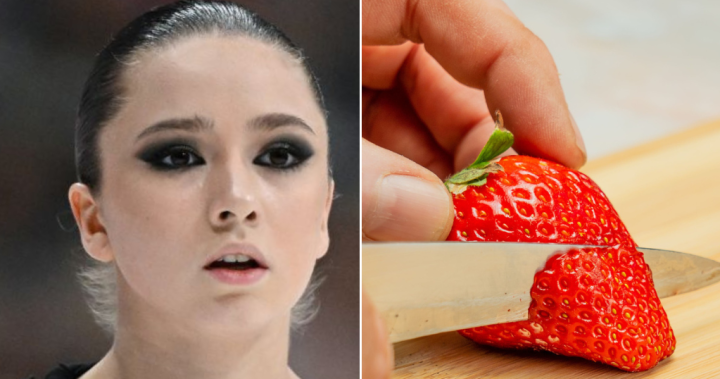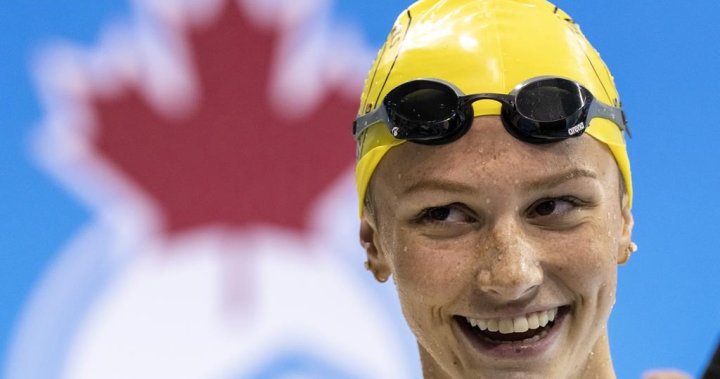Russian figure skater Kamila Valieva swears it was her grandpa’s mistakes in preparing a strawberry dessert that led to a positive doping test.
She was just 15 years old when she found herself at the centre of a drug scandal at the 2022 Winter Olympics in Beijing, in which a drug test she had previously taken in 2021 came to light, where she had tested positive for the banned substance trimetazidine (TMZ).
The Court of Arbitration for Sport (CAS) on Wednesday published the 129-page detailed ruling from its three judges to explain why they imposed a four-year ban last week on Valieva — and the document features the word “strawberry” a staggering 43 times, reports The Associated Press.
Valieva’s legal team tried to convince the CAS that her grandfather “accidentally dropped a pill into the dessert while he was preparing it or because there were crushed residues of a (trimetazidine) tablet on the chopping board he used to prepare the dessert.”
They claimed that her grandfather used the drug as a heart medication and that she was the unfortunate victim of cross-contamination.
But the CAS judges weren’t buying it.
Get the latest National news.
Sent to your email, every day.
“There are too many shortcomings in the evidence, and too many unanswered questions, for the panel to decide that her account is more likely than not,” the judges wrote.
Valieva ate the dessert ahead of competing in the 2021 Russian national competition, it was claimed, and she subsequently tested positive for TMZ during the event. However, the results of the positive doping test did not emerge until after she helped the Russians win gold at the Winter Games six weeks later.
A Russian tribunal effectively cleared her of any blame, and she was allowed to participate in the Games’ individual event, but the ruling was appealed by the World Anti-Doping Agency and sent to the CAS, who disqualified the skater last month and ruled that the gold medal would be stripped from the Russian team and should be given to the second-place U.S. team.
It also means that the Japanese team should be upgraded to silver.
The IOC is responsible for reallocating medals and its executive board is next scheduled to meet in March.
Valieva was one of the youngest athletes to have a positive test revealed at the Olympics, prompting questions about the role of the adults around her and the continuing scourge of Russian doping in international sport. It also fueled a debate over raising the age limit for figure skating.
Valieda’s ban has been backdated to Dec. 25, 2021 — when the positive sample was collected — meaning it will expire less than two months ahead of the next Winter Olympics in Italy.
© 2024 Global News, a division of Corus Entertainment Inc.




